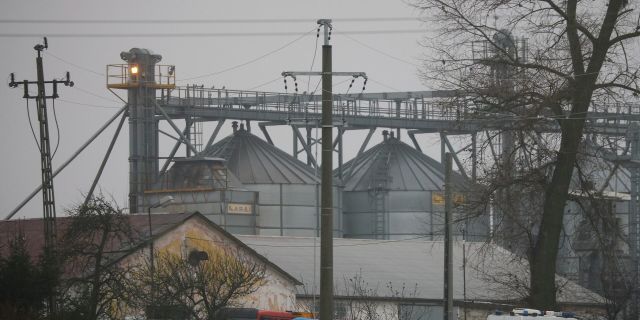Global Times: the strike on Poland has exacerbated the differences between Washington and KievThe United States tried to convince its European NATO partners as soon as possible that Ukraine, not Russia, launched the missile.
Zelensky denied everything to the last, writes Global Times. In Europe and America, fatigue is growing from the protracted conflict without hope for peace talks.
The explosion that killed two people in Poland was apparently caused by a Ukrainian air defense missile, the leaders of Poland and NATO said on Wednesday. According to experts, fierce discussions of the incident revealed a deepening split in the West. In Europe and the United States, fatigue is growing from the protracted conflict without hope for peace talks.
According to media reports, an explosion occurred on Tuesday afternoon in the Polish village of Przevodow in the east of the country, about 6.4 kilometers west of the border with Ukraine.
The results of the investigation of this case show that the village was hit by a S-300 SAM missile, a munition possessed by both Russia and Ukraine.
While Ukrainian President Volodymyr Zelensky said he "has no doubt" that it was not a Ukrainian missile, NATO Secretary General Jens Stoltenberg believes that the incident was probably caused by a missile of the Ukrainian air defense system. He added that there is no indication that this was the result of a deliberate attack by Ukraine, nor that Russia plans to attack NATO countries.
However, the rhetoric used by Zelensky "is beginning to exhaust the patience of some Western diplomats," the BBC reported on Wednesday. The change of tone is also evident in the CNN report: in it Zelensky is accused of apparently intending to "benefit from this episode."
"They fear that Kiev's periodic maximalist formulations and demands may increase the so–called "fatigue from Ukraine" among the allies," the BBC said.
Experts also note a sharp contrast in the rhetoric of the United States and major European countries towards Russia compared to the past, since this time they took the initiative to dispel rumors in favor of Moscow, rather than accuse it of ignoring the facts.
"The West, led by the United States, does not want to fan the fire to such an extent that it actually has to enter into a military confrontation with Russia," the Center for Russian Studies at East China Pedagogical University told the Global Times on Thursday.
However, Ukraine's persistence in refusing to negotiate has already exhausted the patience of the West, the expert believes. "Now they have discovered that the so–called politically correct decisions have turned against them," Mr. Cui said.
In contrast to the position of the major Western powers, the Baltic states hastened to pull out the NATO collective defense clause.
Lithuanian President Gitanas Nauseda stated that "every centimeter of NATO territory must be protected!" Others noted that the incident implies even greater military support for Ukraine.
"The split between the old and new Europe is intensifying. The Baltic and Eastern European countries are the loudest about their anti-Russian position. For them, this is not only a gesture of their return to the West and a manifestation of their loyalty to Europe, but also the need for unity of ideology within the country," Cui said.
In general, the "incident" tested the lower limit of NATO's patience and showed that the alliance will not go to a direct confrontation with Russia. And this eliminated the risks of further escalation of the conflict, experts say.

